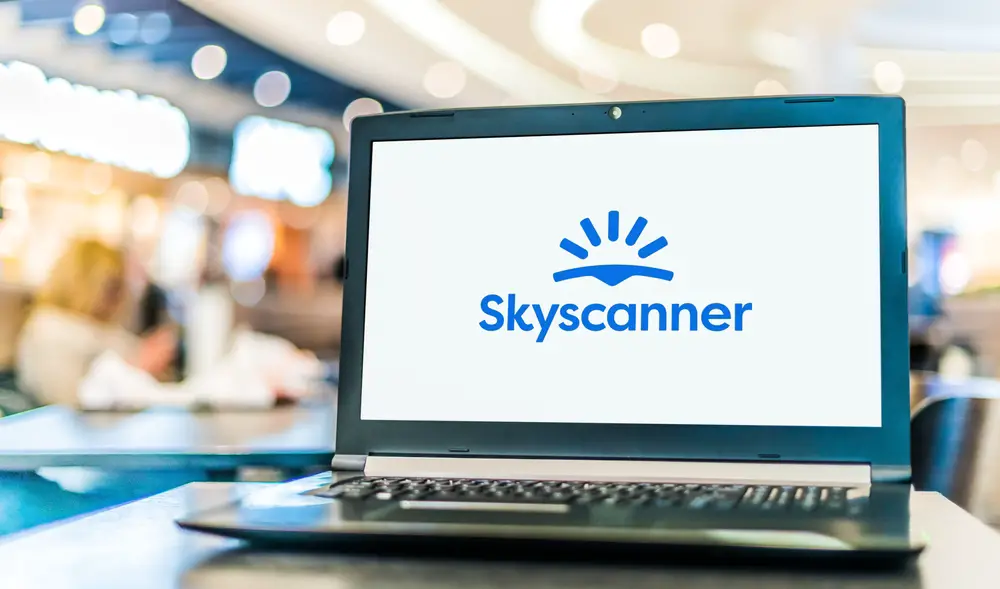The rise of remote work has transformed the way people live and work, giving birth to the digital nomad lifestyle. Countries worldwide have responded by creating digital nomad visas to attract remote workers, offering them the chance to live legally in a new country while working for foreign employers or clients. Two standout destinations in this space are Georgia and Estonia, both of which have pioneered programs to welcome digital nomads. Georgia’s “Remotely from Georgia” program and Estonia’s Digital Nomad Visa (DNV) are among the most appealing options for remote workers seeking to combine work with cultural exploration. But which one is better? This 2,000-word article compares the two visas across key factors like eligibility, application process, costs, tax implications, lifestyle, and more to help you decide.
Overview of the Digital Nomad Visas
Georgia’s “Remotely from Georgia” Program
Launched in August 2020, Georgia’s digital nomad visa, officially called “Remotely from Georgia,” was introduced during the COVID-19 pandemic to attract long-term visitors and stimulate the economy. It allows remote workers from 95 countries to live and work in Georgia for up to one year without needing a visa in advance, thanks to a visa-on-arrival option for eligible nationalities. For others, a straightforward online application process is available. The program is designed to be accessible, with minimal bureaucratic hurdles and no application fees, making it one of the most cost-effective options globally.
Estonia’s Digital Nomad Visa
Estonia was the first European country to launch a digital nomad visa in June 2020, setting a precedent for others. The visa comes in two forms: a Type C (short-stay, up to 90 days) and a Type D (long-stay, up to one year). It targets remote workers, freelancers, and entrepreneurs who work for non-Estonian employers or clients. Estonia’s program is part of its broader push to be a digital hub, building on its innovative e-Residency program, which allows non-residents to access Estonian digital services and run EU-based businesses.
Eligibility Requirements
Georgia
Georgia’s eligibility criteria are relatively lenient, making it accessible to a wide range of digital nomads:
Nationality: Nationals of 95 countries, including the US, Canada, Australia, and most EU countries, qualify for visa-free entry and can apply for the program upon arrival. Others must apply online before traveling, but eligibility is broad.
Income: Applicants must prove a monthly income of at least €1,700 (approximately $2,000 USD). This is significantly lower than many other digital nomad visas.
Employment: You must work remotely for a foreign employer, run a business registered abroad, or freelance for clients primarily outside Georgia.
Other Requirements: A valid passport (at least six months’ validity), health insurance, and proof of sufficient funds to support your stay are required. A clean criminal record is also necessary.
Estonia
Estonia’s requirements are stricter, reflecting its position as a premium destination with a higher cost of living:
Nationality: Open to all nationalities, including EU/EEA citizens, making it inclusive but with more stringent criteria.
Income: Applicants must demonstrate a gross monthly income of at least €4,500 (approximately $5,272 USD) for the six months prior to application. This is one of the highest income thresholds globally.
Employment: You must work for a non-Estonian employer, run a business registered abroad, or freelance for clients primarily outside Estonia. Proof of remote work capability (e.g., employment contracts, client invoices) is required.
Other Requirements: A valid passport, health insurance, proof of accommodation, and a clean criminal record are mandatory. Applicants must also provide academic or professional credentials.
Comparison: Georgia’s lower income threshold (€1,700 vs. €4,500) and broader visa-free access make it more accessible to budget-conscious nomads or those with variable incomes. Estonia’s high income requirement caters to high-earning professionals, particularly in tech or consulting, but may exclude many freelancers or early-career nomads.
Application Process
Georgia
Georgia’s application process is one of the simplest:
Online Application: Non-exempt nationals apply online through a government portal, submitting documents like a passport copy, proof of income, and health insurance. The process is fully digital and takes about 10 business days.
Visa on Arrival: For nationals of 95 eligible countries, no pre-application is needed. Upon arrival, you present your documents at the immigration counter and complete a quick form.
Documents: Passport, proof of income (e.g., bank statements), health insurance, and a signed application form.
Fees: There are no application fees, making it highly cost-effective.
Estonia
Estonia’s process is more involved and requires an in-person component:
Online Form: Start by completing a Type C or Type D visa application on the e-Residency portal, providing detailed personal, employment, and income information.
In-Person Submission: Applications must be submitted in person at an Estonian embassy or consulate (or VFS office for some nationalities, like the US, Canada, or Australia). This can be a hurdle for those far from an embassy.
Documents: Include a valid passport, signed application form, proof of income (six months of bank statements), employment contract or freelance proof, health insurance, accommodation proof, and professional credentials.
Fees: €80 for Type C (short-stay) or €100 for Type D (long-stay). Nationals of countries with EU visa facilitation agreements (e.g., Georgia, Ukraine) pay €35.
Processing Time: Up to 30 days, depending on the embassy’s schedule and background checks.
Comparison: Georgia’s fully online process (or visa-on-arrival option) and lack of fees make it faster and more convenient. Estonia’s in-person requirement and longer processing time can be a drawback, especially for nomads in remote locations or those seeking quick approval.
Costs and Fees
Georgia
Application Fees: None, a significant advantage.
Cost of Living: Georgia is one of the most affordable countries in Europe. The cost of living in Tbilisi is approximately $600–$800 per month for a single person, including rent, food, and transport.
Other Costs: Health insurance (around $30–$50/month for basic coverage) and minimal administrative costs for document preparation.
Estonia
Application Fees: €80–€100, depending on visa type, or €35 for certain nationalities.
Cost of Living: Estonia’s cost of living is higher, with Tallinn averaging $1,200–$1,500 per month for a single person, including rent, food, and transport.
Other Costs: Health insurance ($50–$100/month) and potential costs for notarized documents or translations.
Comparison: Georgia wins on affordability, with no visa fees and a lower cost of living. Estonia’s higher fees and living expenses make it better suited for those with higher budgets.
Tax Implications
Georgia
Tax Residency: You become a tax resident if you spend 183 days or more in Georgia within a year. However, digital nomads earning income from foreign sources are generally exempt from local income tax, as Georgia taxes only locally sourced income for non-residents.
Ease of Compliance: No need for foreign employers to register in Georgia, simplifying tax matters. Double Taxation Agreements (DTAs) with many countries further reduce tax burdens.
Estonia
Tax Residency: Spending 183 days or more in Estonia triggers tax residency, subjecting you to a flat 20% income tax rate on worldwide income. Even under 183 days, foreign employers may need to register with the Estonian Tax and Customs Board, complicating compliance.
Double Taxation: A Double Tax Treaty with countries like the UK helps avoid double taxation, but the process can be complex for nomads with income from multiple sources.
Comparison: Georgia’s tax system is more favorable for digital nomads, with no local tax on foreign income and simpler compliance. Estonia’s tax rules are stricter, and the potential for employer registration makes it less appealing for short-term stays.
Lifestyle and Infrastructure
Georgia
Culture and Lifestyle: Georgia, nestled in the Caucasus, offers a unique blend of Eastern European and Asian influences. Tbilisi is vibrant, with a rich culinary scene, affordable coworking spaces, and a welcoming expat community. The country’s mountains, beaches, and historical sites provide ample opportunities for adventure.
Internet and Infrastructure: Internet speeds average 30–50 Mbps in urban areas, sufficient for remote work. Coworking spaces are growing in Tbilisi, and the cost of living supports a comfortable lifestyle.
Safety and Stability: Georgia is generally safe, but protests in Tbilisi can disrupt transport and services. Nomads are advised to avoid demonstrations.
Estonia
Culture and Lifestyle: Estonia is a tech-savvy, Nordic-style country with a high quality of life. Tallinn’s medieval charm, vibrant startup scene, and access to nature (forests, lakes) make it attractive. The digital nomad community is well-established, with numerous coworking spaces.
Internet and Infrastructure: Estonia boasts some of the fastest internet in Europe (125 Mbps average) and a highly digitalized infrastructure, including e-governance services.
Safety and Stability: Estonia is very safe, with low crime rates and a stable political environment, making it ideal for long-term stays.
Comparison: Estonia excels in digital infrastructure and tech-friendliness, ideal for high-earning tech professionals. Georgia offers a more affordable, culturally rich experience but lags in internet reliability.
Visa Duration and Flexibility
Georgia
Duration: Up to one year, non-renewable. After expiration, you must leave and reapply if eligible.
Schengen Access: Georgia is not in the Schengen Area, so the visa doesn’t grant access to EU countries. However, its visa-free policy for many nationalities allows travel to nearby countries like Turkey or Armenia.
Residency Path: Registering as an Individual Entrepreneur can lead to residency, offering a path for longer stays.
Estonia
Duration: Type C (up to 90 days) or Type D (up to one year). The Type D visa allows a maximum stay of 548 days within 730 consecutive days, after which you must leave and reapply.
Schengen Access: As an EU member, Estonia’s visa grants free movement within the Schengen Area, a significant perk for exploring Europe.
Residency Path: The visa does not lead to permanent residency or citizenship, limiting long-term options.
Comparison: Estonia’s Schengen access is a major advantage for nomads wanting to explore Europe. Georgia’s visa is simpler but lacks EU travel benefits. Both offer one-year stays, but Georgia’s residency path adds flexibility.
Pros and Cons
Georgia
Pros:
No application fees and low cost of living.
Simple, fully online application or visa-on-arrival option.
Lower income requirement (€1,700/month).
Tax-friendly for foreign income.
Rich cultural and natural attractions.
Cons:
Weaker internet infrastructure compared to Estonia.
No Schengen Area access.
Potential for political protests affecting urban areas.
Estonia
Pros:
World-class digital infrastructure and fast internet.
Schengen Area access for travel across 27 EU countries.
Vibrant tech and startup ecosystem.
High safety and quality of life.
Cons:
High income requirement (€4,500/month).
In-person application requirement.
Higher cost of living and visa fees.
Complex tax rules for stays over 183 days.
Which is Better?
The choice between Georgia and Estonia depends on your priorities as a digital nomad:
Choose Georgia if: You’re a budget-conscious nomad, freelancer, or early-career professional seeking affordability and cultural immersion. The low income threshold, zero fees, and simple application process make it ideal for those testing the nomad lifestyle or prioritizing low costs. Georgia’s unique blend of history, cuisine, and natural beauty is perfect for adventurers on a budget. However, be prepared for less reliable internet and no Schengen access.
Choose Estonia if: You’re a high-earning tech professional or entrepreneur valuing digital infrastructure, safety, and EU travel. The high income requirement and costs are offset by Estonia’s fast internet, startup culture, and Schengen Area access. It’s best for those who can meet the financial threshold and want a premium, tech-forward experience.
Conclusion
Both Georgia and Estonia offer compelling digital nomad visas, but they cater to different profiles. Georgia’s “Remotely from Georgia” program is a standout for its affordability, simplicity, and low income requirements, making it accessible to a broader range of nomads. Estonia’s Digital Nomad Visa, with its high income threshold and advanced infrastructure, appeals to high-earning professionals seeking a tech-savvy, EU-based hub. Consider your budget, work needs, and travel goals when choosing. For affordability and cultural richness, Georgia is hard to beat. For digital excellence and European exploration, Estonia is the clear winner. Whichever you choose, both countries offer unique opportunities to live, work, and explore as a digital nomad in 2025.














